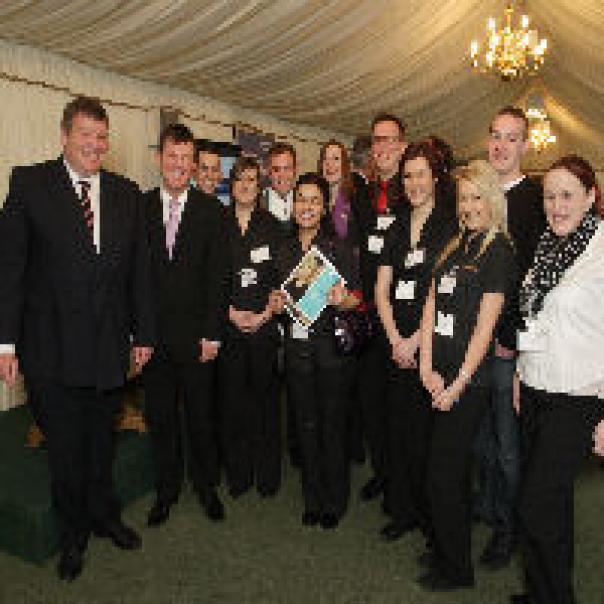2nd Feb 2011 - 00:00
Image

Abstract
Chairman of People 1st David Fairhurst spoke out about the hospitality sector's new apprenticeship strategy as well as its six new key objectives at a Parliamentary reception held yesterday (1 February).
Each year, the amount of young people entering the workplace is decreasing by 60,000 and options such as recruiting from abro d are now becoming less viable. Over the next six years, more people will be needed to fill over one million vacancies.
Fairhurst says it is crucial that they concentrate on growing their people: "By 2017, the sector will have grown into one which employs 2.4 million people, so we'll need to continue to grow our people and, as a means of growing our people, apprenticeships will continue to perform an important role in maintaining the highest standards of training and development."
"Echoing what David Fairhurst was saying about the visitor economy, it plays a critical part for driving the UK's economy and the Prime Minister understands this," said John Penrose, minister for tourism. "It's one of the fastest growing, dynamic and fun sectors and has a great future ahead. But we need to create and develop a dynamic thrusting sector, and the way to do this is through greater skills. Better skills drive economic growth, leading to a higher quality experience for customers."
"Apprenticeships are the lifeblood of our dynamic, innovative and fast-growing sector and People 1st, working closely with sector employers, is committed to raising the number of apprenticeships further to tackle the sector's skills needs and gaps," said People 1st's director of policy and research, Martin-Christian Kent. "22,000 apprentices start their training each year in our sector and we aim to increase this to 30,000 by 2020, whilst boosting completion rates to 80%."
Des Lawson, HR director at Barcelo Hotels, says apprenticeships have been fundamental to their business, helping them to retain people as well as offering individuals career development and progression. "We identified skills gaps in our business, particularly chef skills, that we knew we had to fill and the answer for us was to train our own people. "Apprenticeships were a natural way of doing this. Nowadays, the apprenticeship framework is far more flexible and employer-friendly – you can add onto them, tailor them and make sure they fit the business needs as well as those of the individual going through the qualification. "My advice to other employers is to commit to apprenticeships – the benefits far outweigh the costs and generally we see direct returns within 12 months."
The apprenticeship strategy encompasses six key objectives: • Ensure that apprentices are effectively prepared to start an apprenticeship • Raise awareness of the Asian and Oriental specialist chef routes within the Professional Chef apprenticeship to support employers with responding to changes in migration policy • Ensure that apprenticeships are robust and reflect the needs of the sector • Reduce unnecessary barriers to employers offering apprenticeships and apprentices completing them • Help retain apprentices on apprenticeship programmes • Raise the demand for higher level apprenticeships
Category